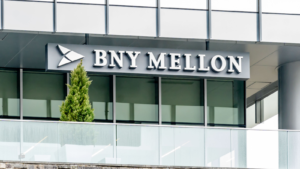When it comes to Warren Buffett stocks to buy, the quintessential purchase is Berkshire Hathaway (NYSE:BRK-B). After all, when you buy shares in Berkshire, you not only get a bunch of great operating businesses like BNSF Railway, Geico, Berkshire Energy and so many more, but you also get an equity portfolio currently worth more than $350.5 billion.
When I wrote about the portfolio in March 2021, it was worth $279 billion, so it grew by $71 billion, or 25.6%, in less than 24 months. During the same period, the S&P 500 is up 6.4%. Of course, I’d have to go back and subtract the funds added to the portfolio over the past 24 months, but I think you’ll find that even then, Buffett and his two other portfolio managers — Todd Combs and Ted Weschler — have outperformed the index. This is why I’ve always said that buying BRK-B is better than owning a market-beating low-cost ETF.
After a tough year for the markets, a number of the 52 publicly traded U.S. stocks owned by Berkshire Hathaway are lower. For instance, Apple (NASDAQ:AAPL), the holding company’s largest holding accounting for 39.7% of the equity portfolio, is down 13.4% over the past 52 weeks.
Of course, Buffett didn’t get where he is today by worrying about short-term gyrations in the market. He buys stocks for the long haul. For average investors, the past year’s weakness may present a great opportunity to pick up some of Buffett’s favorite stocks at a discount.
Each of the seven names on this list is down more than the S&P 500 over the past year. So, without further ado, here are the best beaten-down Warren Buffett stocks to buy.
| PARA | Paramount Global | $22.42 |
| BAC | Bank of America | $36.49 |
| TSM | Taiwan Semiconductor Manufacturing | $94.29 |
| DVA | DaVita | $83.57 |
| HPQ | HP | $29.60 |
| BK | Bank of New York Mellon | $51.78 |
| AAPL | Apple | $151.92 |
Paramount Global (PARA)
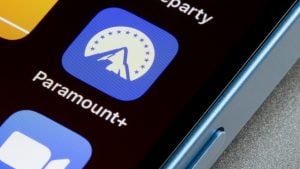
Paramount Global (NASDAQ:PARA), Berkshire’s 21st-largest holding, accounts for 0.6% of the portfolio. It owns 15% of the company created after the 2019 merger that brought together CBS and Viacom.
I’ve been a subscriber to Paramount+ for several months. I find its content far more compelling than Disney+, but I don’t have kids, so I’m probably not the demographic Disney is after.
Paramount’s stock has lost more than any of Berkshire’s top 20 holdings over the past year, down 33.1%. Buffett bought more PARA shares in Q3 2022. It will be interesting to see if the holding company added to the position in the fourth quarter, which we will learn mid-month. If so, it would almost certainly boost Paramount’s share price in the near term.
In late January, the company said it would merge Paramount+ and Showtime. There have also been rumblings that Paramount+ and Peacock could join into one streaming platform to take on Netflix (NASDAQ:NFLX), Disney (NYSE:DIS), Amazon (NASDAQ:AMZN) Prime, and Apple.
Whatever happens, PARA remains cheap with an enterprise value of $29.2 billion, less than six times earnings before interest, taxes, depreciation and amortization (EBITDA).
Bank of America (BAC)

Bank of America (NYSE:BAC) is Berkshire’s biggest financial services holding, accounting for 10.8% of its equity portfolio. The 1.03 billion shares held are good for a 12.9% stake in the bank.
In April 2020, Berkshire got approval from the Federal Reserve Bank of Richmond to buy up to a 24.9% stake in BAC. Berkshire started investing in Bank of America in 2011 by purchasing $5 billion in preferred stock that came with warrants to buy 700 million common shares.
It’s estimated to have paid an average price of $25.52 a share over the past decade. The stock is 43% above that price despite a 24% decline in its share price over the past year.
In addition to long-term capital appreciation, Bank of America pays a 22-cent quarterly dividend for a yield of 2.4%. Based on Berkshire’s 1.03 billion shares held at the end of the third quarter, BAC supplied the company with more than $226.6 million in passive income for the quarter.
Analysts are mixed on BAC stock. Of the 28 covering it, just 15 rate it “overweight” or “buy,” with an average target price of $40.81, a few dollars higher than where it’s currently trading. Ignore the analysts and go with Buffett instead.
Taiwan Semiconductor Manufacturing (TSM)
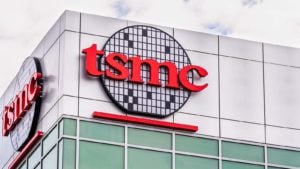
Taiwan Semiconductor Manufacturing (NYSE:TSM) is one of Berkshire’s newest positions and one of the largest new positions, accounting for 1.6% of the portfolio.
Buffett bought the entire 6o.1 million shares in the third quarter of 2022. Berkshire paid an estimated average of $68.56 a share, about 15% above the stock’s 52-week low. Currently, shares are trading 37.5% above Berkshire’s average purchase price.
TSM supplies an estimated 90% of the world’s super-advanced computer chips. Apple is a big customer. Buffett’s gotten very familiar with Apple’s operations. So it made sense to buy shares in a beaten-down supplier. If Apple succeeds, so too does Taiwan Semiconductor.
TSM finished 2022 as the largest company in the Asia Supply Chain Market Cap 100 ranking despite losing nearly $200 billion in market cap last year. It’s got a big chunk of that back in the first six weeks of 2023.
By most financial metrics, TSM’s valuation remains lower than it has been at almost any time over the past four years.
DaVita (DVA)

DaVita (NYSE:DVA) is Berkshire’s largest position in terms of its ownership stake. The holding company owns 40.1% of the operator of dialysis centers. Its next largest ownership stake is Kraft Heinz (NASDAQ:KHC) at 26.6%.
Buffett first acquired shares in Q4 2011. Its estimated average price paid per share is $48.85. So, despite some difficulties at the company over the past decade, Berkshire is comfortably in the black on its bet.
If you look at DaVita’s Q3 2022 results, you’ll notice that the revenue per treatment in the first nine months of 2022 was $6.47 higher at $364.89. However, the patient care costs per treatment were $12.64 higher at $251.88. As a result, the company’s adjusted operating margin was 13%, 340 basis points lower than a year ago in the same period. Can you say inflation?
Free cash flow is one place the company managed to keep pace with last year. In the first nine months of 2022, it was $1.032 billion, just $22 million less than a year ago. Its trailing 12-month free cash flow is $1.15 billion. Based on its $7.53 billion market cap, it has a free cash flow yield of 15.3%. I consider anything above 8% to be in value territory.
DVA remains an excellent long-term buy.
HP (HPQ)
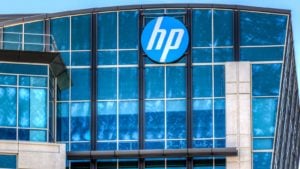
HP (NYSE:HPQ) stock has fallen 20.5% in the past year and 29% from its April 2022 high of $41.47. Warren Buffett can thank the post-Covid-19 PC demand slowdown for the price correction. According to Gartner, Q4 global PC shipments fell by more than 28%. For its part, HP experienced a 26% decline in notebook sales during the quarter.
However, HP CEO Enrique Lores believes that demand will pick up in a year or two once work-at-home employees need to refresh their equipment.
“We really think that people are going to continue to work in a hybrid way, which means sometimes working from home and sometimes working from the office, doing different things in different locations,” Lores said. “And clearly, this is a big opportunity for us.”
HP is Berkshire’s 12th-largest holding with a current market value of $3.6 billion, good for 12.3% of the company and 1% of Berkshire’s equity portfolio. Berkshire is HP’s largest shareholder. It first acquired shares in the PC maker in Q1 2022, paying an estimated average price of $36.94 a share.
Yes, it’s underwater on its investment, but given Berkshire gets more than $127 million in dividends annually, it’s getting paid to wait for the rebound.
Bank of New York Mellon (BK)
Bank of New York Mellon (NYSE:BK) is the second of two banks on my list of beaten-down Warren Buffett stocks to buy. Berkshire owns 7.7%, accounting for 0.9% of the holding company’s equity portfolio.
The bank’s CEO, Hanneke Smits, just got named chairwoman of the 30% Club. The 30% Club are CEOs and executives from around the world working on getting female representation on large companies’ boards and executive committees to 30%, hence the name.
I’ve long felt that women often make better leaders than men. In 2018, I recommended seven women-led companies to invest in for long-term returns. Except for Ventas (NYSE:VTR) and Kohl’s (NYSE:KSS), they’ve seriously outperformed the S&P 500.
However, like many banks, Bank of New York Mellon had to make some adjustments to its business given the current economic environment. On Jan. 13, when it announced its Q4 2022 results, it said it would cut 1,500 jobs, or 3% of its workforce.
However, it earned $1.30 a share on an adjusted basis, 7% higher than in Q3 2022 and 25% above Q4 2021. It also beat the consensus estimate by eight cents.
It’s got a healthy 2.9% dividend yield to help tide shareholders over during this challenging time.
Apple (AAPL)
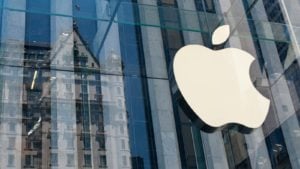
I’d be a wealthy man if I had a dollar for every time a story was written about Warren Buffett and Apple. Because most readers already know the whole story of Berkshire’s investment in the iPhone maker, I won’t bother retelling it.
Apple recently delivered a rare stinker of a quarter, missing on almost every metric for its fiscal first quarter. Even the best companies aren’t going to hit their mark 100% of the time.
Revenue fell by 5% to $117.2 billion, with services providing one of the few bright spots. Services sales during the first quarter were $20.77 billion, 6.4% higher than a year ago. However, sales for iPhones fell 8.2% to $65.78 billion, accounting for 56% of its overall revenue. On the bottom line, EPS of $1.88 was 10.5% lower than a year ago.
However, someone as patient as Buffett will focus on the words of Apple CFO Luca Maestri.
“We set an all-time revenue record of $20.8 billion in our Services business, and in spite of a difficult macroeconomic environment and significant supply constraints, we grew total company revenue on a constant currency basis,” Maestri said. “We generated $34 billion in operating cash flow and returned over $25 billion to shareholders during the quarter while continuing to invest in our long-term growth plans.”
With more than $51 billion in net cash on its balance sheet, Apple can afford to have a bad quarter or two. That’s why Buffett’s got so much invested in the company.
On the date of publication, Will Ashworth did not have (either directly or indirectly) any positions in the securities mentioned in this article. The opinions expressed in this article are those of the writer, subject to the InvestorPlace.com Publishing Guidelines.

